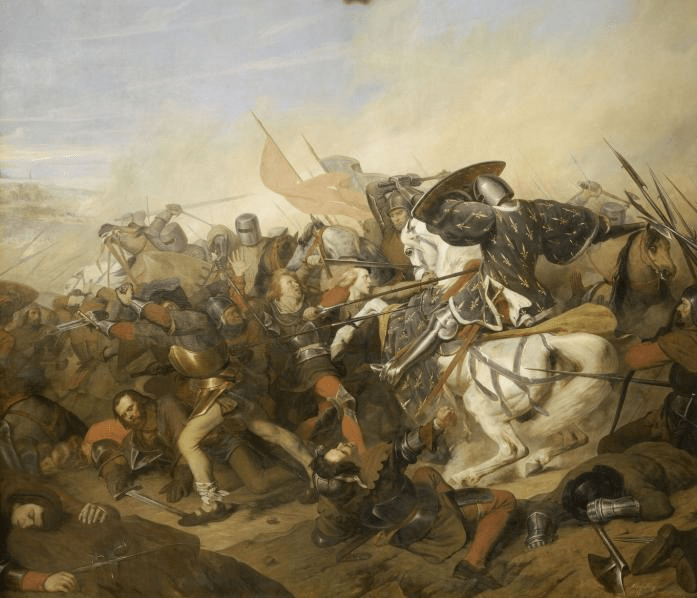
ADVERTISEMENT - CONTINUE READING BELOW
Flanders Peasant Revolt
The Flanders Peasant Revolt of 1323 – 1328 was a massive uprising of peasants and burghers in Flanders, that was one of the most violent insurrections of the Middle Ages. The revolt was sparked by a recent imposition of onerous taxation by Flanders’ new ruler, count Louis I, and by his unpopular pro-French policies, which were detrimental to the financial interests of most in Flanders, whose economy revolved around trade with England.
The revolt was a class protest by peasants who had hitherto enjoyed self government, a privileged form of land tenancy, and legal protections against aristocratic abuses, all of which they sensed were now under threat. The peasants found willing allies in the cities’ burghers, whose struggle to keep and expand their hard-won liberties was threatened by Flanders’ count, and his ally, the king of France.
Following a poor harvest in 1323, scattered rural riots erupted late that year, with peasants refusing to pay taxes to count Louis. Soon, the rioters coalesced into larger bands, led by prosperous farmers, local gentry, and the mayor of Bruges. The count, lacking military force, negotiated a peace with the rebels in 1324, recognizing the legitimacy of their complaints.
The rebels returned to the warpath, however, following the murder of a commoner by a knight, and count Louis’ arrest of 6 Bruges burghers. The count was captured and brought to Bruges, where several of his leading adherents were executed in 1325. After negotiations, combined with pressure from the king of France, count Louis was released in 1326, and a peace treaty was ratified soon thereafter.
When insurrection broke anew in 1328, following the French king’s death, the count of Flanders called upon the new king, Phillip VI, for military aid. A French military expedition was organized, which defeated the rebels at the Battle of Cassel later that year. Taking hostages for the Flemish burghers’ good behavior, Philip VI returned to France, where he executed the mayor of Bruges. Back in Flanders, count Louis set about punishing the defeated rebels and stamping down the last embers of resistance.

